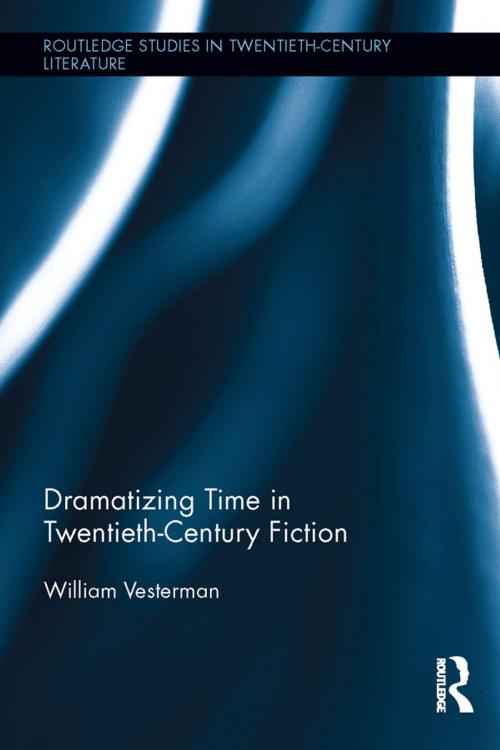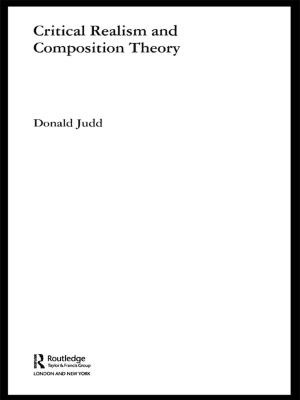Dramatizing Time in Twentieth-Century Fiction
Fiction & Literature, Literary Theory & Criticism, British, American| Author: | William Vesterman | ISBN: | 9781317743651 |
| Publisher: | Taylor and Francis | Publication: | July 17, 2014 |
| Imprint: | Routledge | Language: | English |
| Author: | William Vesterman |
| ISBN: | 9781317743651 |
| Publisher: | Taylor and Francis |
| Publication: | July 17, 2014 |
| Imprint: | Routledge |
| Language: | English |
How have twentieth-century writers used techniques in fiction to communicate the human experience of time? Dramatizing Time in Twentieth-Century Fiction explores this question by analyzing major narratives of the last century that demonstrate how time becomes variously manifested to reflect and illuminate its operation in our lives.
Offering close readings of both modernist and non-modernist writers such as Wodehouse, Stein, Lewis, Joyce, Hemingway, Faulkner, Borges, and Nabokov, the author shares and unifies the belief, as set forth by the distinguished philosopher Paul Ricoeur, that narratives rather than philosophy best help us understand time. They create and communicate its meanings through dramatizations in language and the reconfiguration of temporal experience. This book explores the various responses of artistic imaginations to the mysteries of time and the needs of temporal organization in modern fiction. It is therefore an important reference for anyone with an interest in twentieth-century literature and the philosophy of time.
How have twentieth-century writers used techniques in fiction to communicate the human experience of time? Dramatizing Time in Twentieth-Century Fiction explores this question by analyzing major narratives of the last century that demonstrate how time becomes variously manifested to reflect and illuminate its operation in our lives.
Offering close readings of both modernist and non-modernist writers such as Wodehouse, Stein, Lewis, Joyce, Hemingway, Faulkner, Borges, and Nabokov, the author shares and unifies the belief, as set forth by the distinguished philosopher Paul Ricoeur, that narratives rather than philosophy best help us understand time. They create and communicate its meanings through dramatizations in language and the reconfiguration of temporal experience. This book explores the various responses of artistic imaginations to the mysteries of time and the needs of temporal organization in modern fiction. It is therefore an important reference for anyone with an interest in twentieth-century literature and the philosophy of time.















